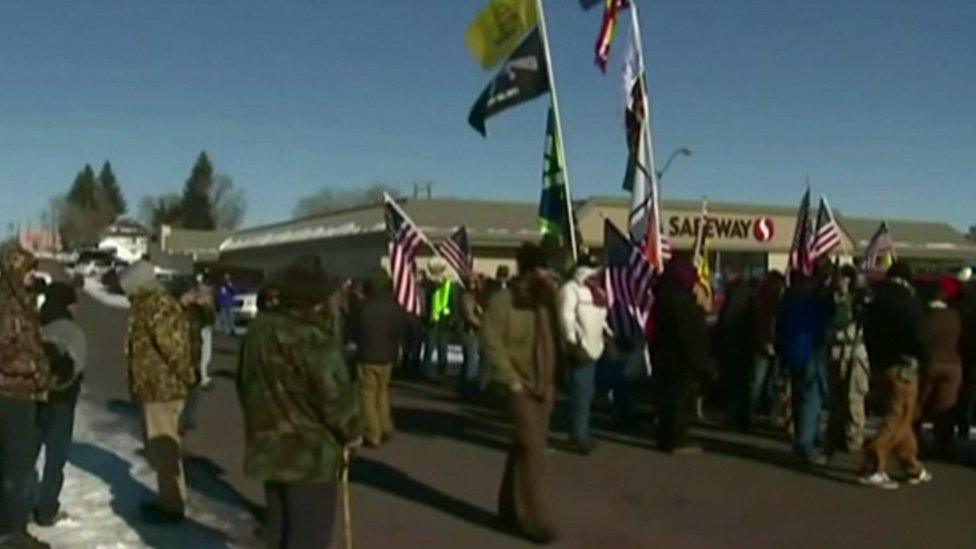Oregon stand-off: Robert 'LaVoy' Finicum, a militiaman apart
- Published
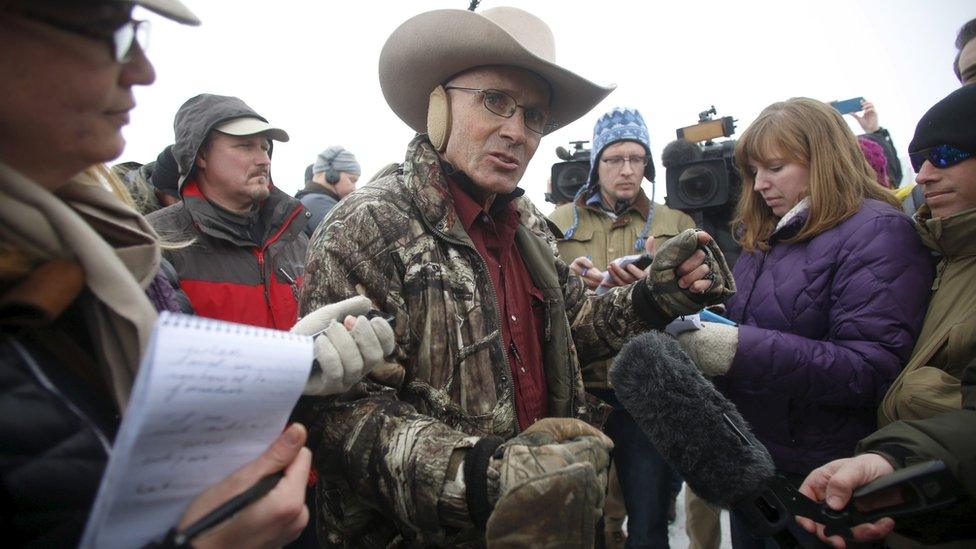
Robert LaVoy Finicum became de facto spokesman for the militia in Oregon
In the early days of the Oregon occupation, the militiamen were a mixed bunch. There were the taciturn ones, the braggarts and the loose cannons.
And then there was LaVoy Finicum, a man who seemed to stand apart from the rest. He was articulate, for a start, and clearly trusted by the militia leader, Ammon Bundy.
In several news conferences, Mr Bundy would set out his own stall briefly before inviting Mr Finicum to expand on the group's discontent with the federal government.
Mr Finicum cut a distinct figure too, with a wide-brimmed hat, spectacles and ear muffs plus a green and brown camouflage jacket, which stood out somewhat on Oregon's icy plains.
There was more snow than sagebrush in the spot he had picked for his revolution.
One-on-one, the rancher from Mohave County, Arizona, listened carefully to my questions and replied with a smile. It was a pleasant change from conversing with some of his over-bearing, over-excited fellow militiamen.
"What's important for me is my family, my kids and individual Americans," he told me. "I want them to live freely. I want them to have access to their natural rights, their property rights."
Was it not right to do so through the law, rather than in an action like this?
"Well, it is the law. The constitution is the supreme law of the land and it's been violated. We have exhausted every avenue."
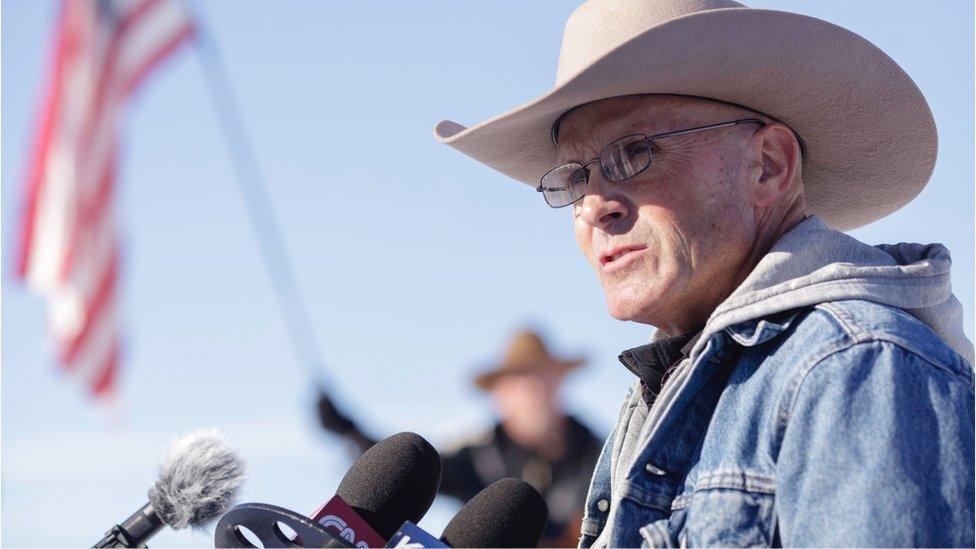
Mr Finicum spoke frequently with the assorted reporters at the wildlife refuge
As to how long he would be prepared to stay, Mr Finicum, who told me he was turning 55 this month, had a sound-bite ready.
"I would like to go home as soon as possible but we shall stay here as long as necessary. We leave when the ranchers are safe on their ranches.
"We need these public lands to be regulated by the counties and the states not by the federal government. That is the proper way. The government closest to the people governs best. That is the republic."
He was aware, he said, of how the occupation might end, although he insisted a raid by a SWAT team "would be a silly thing."
"The federal government has complete ability to come here in a moment and just wipe us all out," he said.
"Let's make no mistake about it. The federal government has great resources and great abilities. There is no illusions as who is most powerful. This is America. Our military force, our forces are top notch. We are just citizens, sir."
Ready to die
On one foul night in the cold with sleet falling and rumours of a raid flying, Mr Finicum took his rifle and sat on the ground at the entrance to the bird reserve headquarters with the weapon on his lap.
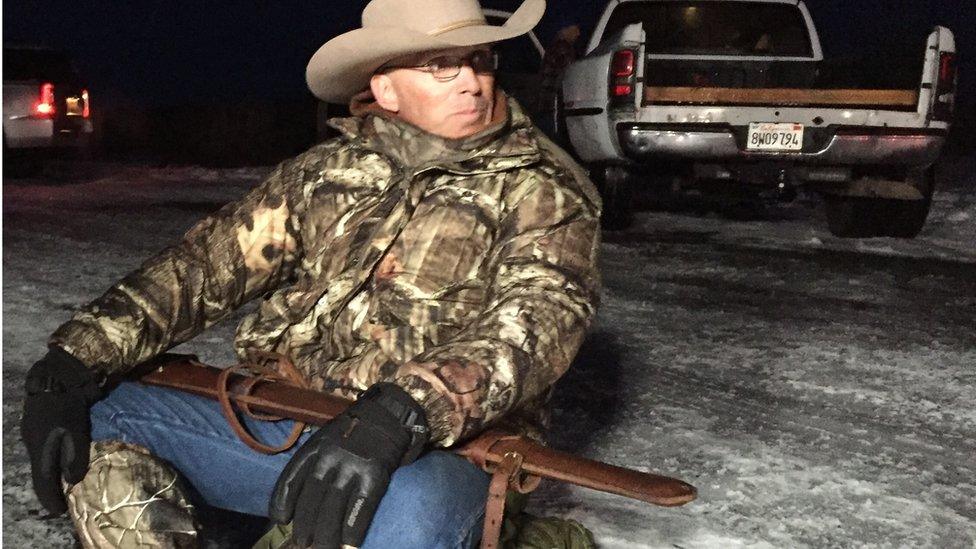
Robert LaVoy Finicum was stoical - but calm - during the interview
When someone brought him a stool and then covered him entirely with a blue tarpaulin to keep him dry, reporters scoffed. Mr Finicum ignored the giggles and sat stock-still for hours.
When I knelt down to chat to him, he was polite and resolute. If federal agents or the police were coming for him, he told me, he would resist. He had no intention of being caged and, if necessary, he was ready to die.
He had moved away from the refuge buildings, he pointed out, so as not to place anyone in danger if he had to make a stand. They will be able to find me here, he said, adding that he was warning the FBI and the police not to point their guns at him.
He would not attack law enforcement, he claimed, but if they tried to take him by force, he would fight back, using his gun if necessary. There were "more important things than life", he said, and he was prepared to die in the name of "freedom".
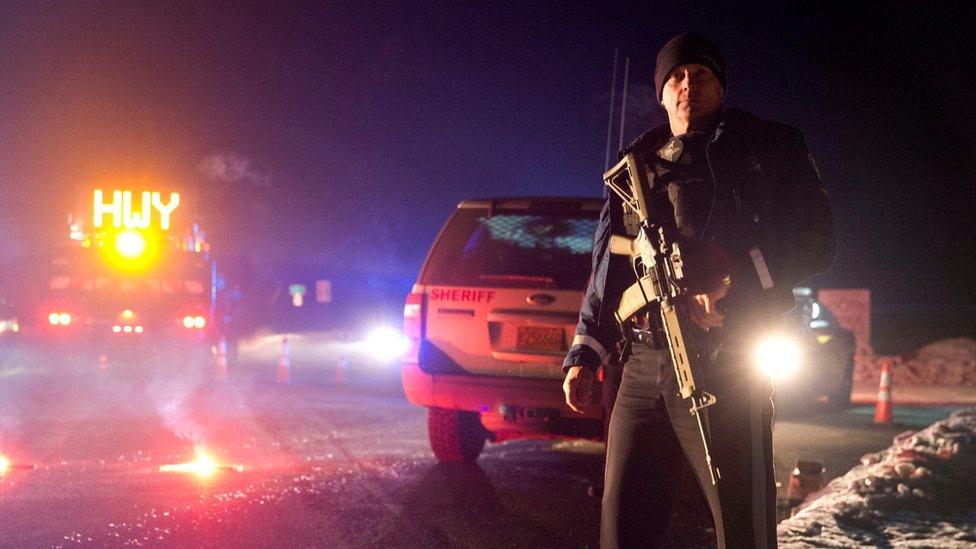
Mr Finicum died in an altercation with police on Highway 395
When I suggested that he was putting the lives of the many media crews around the gate at risk, he smiled, saying he reckoned we were experienced enough to look after ourselves.
Above all, Mr Finicum appeared calm, even stoical. And in the end he appears to have died as he predicted he might, violently and at the hands of the authorities he despised.
He will now be called both a terrorist and a martyr. No doubt the circumstances of his death will be disputed for years to come.
Whatever the truth of his final moments, LaVoy Finicum leaves behind a large family, reportedly of 11 children. At one point during our conversations, I asked Mr Finicum how long it would be before he needed to get back to his ranch and his cattle.
"I have a 17-year-old daughter," he said. "Thank goodness she's a firecracker, I hope she can hold everything together. I'm a small producer. She'll be able to do it."
- Published27 January 2016
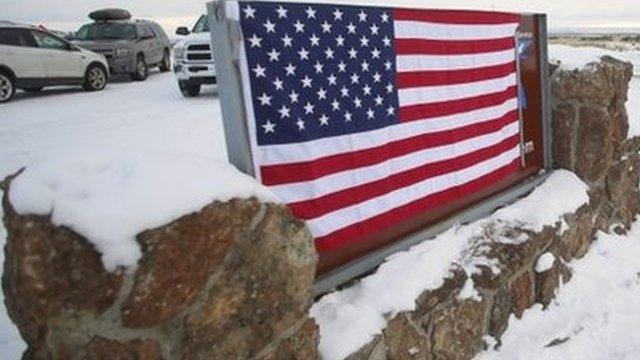
- Published5 January 2016
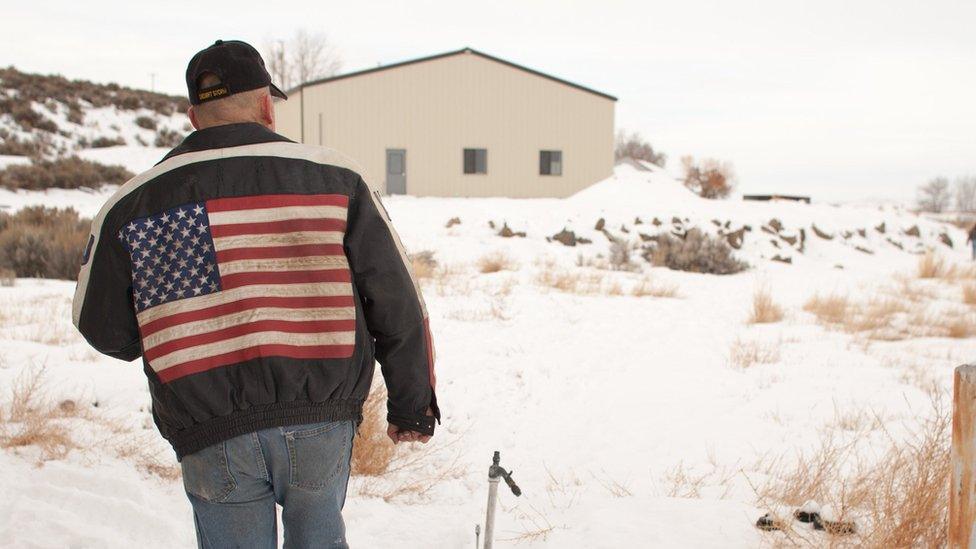
- Published3 January 2016
